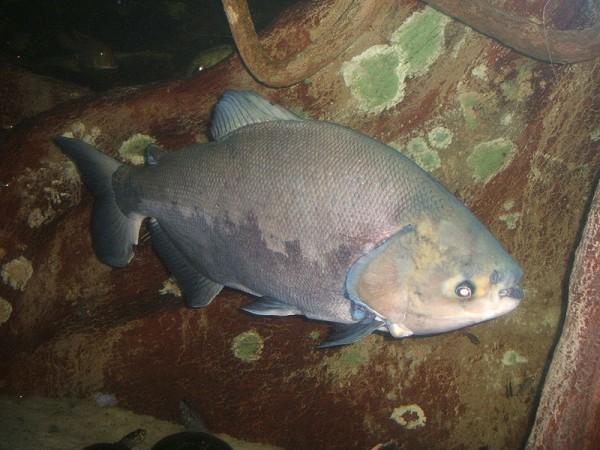
A pacu fish, known for consuming human testicles, has been found in a lake in Michigan. The fish is believed to be a relative of the deadly, human flesh-eating piranha.
Tom and Holley Luft, two local residents, were fishing at Lake St. Clair on 9 July, when the latter caught the 14-inch pacu. Initially, the fish looked more of a blue gill to them, until they saw its sharp teeth and assumed it to be a piranha, reported Denver Channel.
The capture of the piranha relative was later confirmed by the Michigan Department of Natural Resources. However, the department has reportedly assured the residents that it is safe to swim in the Lake Lou Yaeger as such fish attacks are extremely rare.
The omnivorous fish have surprisingly human-like teeth and can grow up to 55 pounds in the wild, according to the Museum of Natural History of Denmark at the University of Copenhagen.
Despite being a relative of piranha, pacu generally consumes fruit, insects and nuts. But they have a previous record of consuming other fish and even human flesh.
In 2011, two fishermen from Papua New Guinea bled to death after a pacu bit off their testicles. The incident earned pacus, the nickname the 'ball-cutter'. The same species was spotted in a lake in Illinois in 2012.
"Mouth is not so big, so of course it normally eats nuts, fruit, and small fish, but human testicles are just a natural target. It's not normal to get your testicles bitten off, of course, but it can happen," NPR quoted Henrik Carl, the museum expert, last year while explaining the potential risks associated with the fish targeting testicles.
Pacus originally belong to the Amazon. Their presence in the Michigan lake is believed to be caused by some pet owners who abandoned them. Rare flesh-eating fish can be legally owned and purchased from tropical fish stores for around $12. Experts believe that the owners must have dumped it into the lake due to the fish's overgrown size or overaggressive nature.
Because of their tropical nature, pacus are unlikely to survive a winter in the Great Lakes. Hence, the rare fish will find new home at the State of Michigan DNR Library for Invasive Species.








